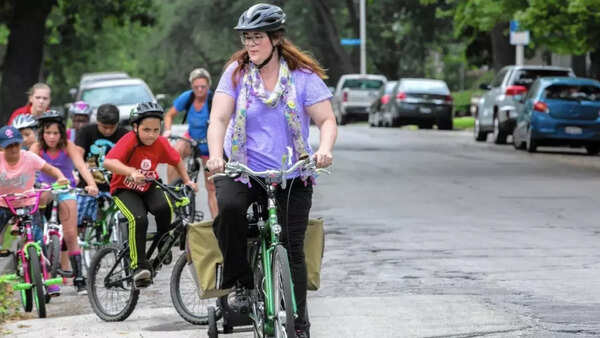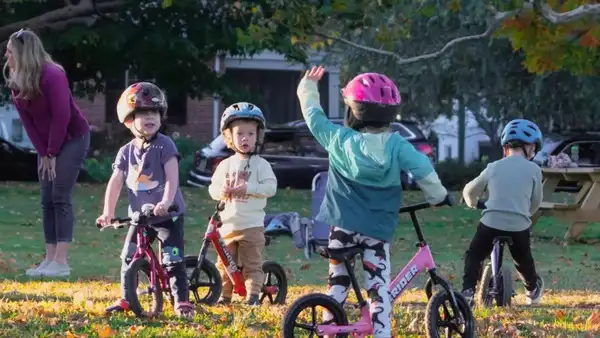ARTICLE AD BOX
Remember the carefree days spent on bikes, painting, or playing in the backyard? Turns out, there’s more to those memories than nostalgia. What if those simple joys from childhood could actually help you live longer and happier? Recent research has begun to illuminate how childhood hobbies can shape lifelong well-being, boosting physical health, mental resilience, and social bonds.A groundbreaking new study from Japan even highlights that simple, familiar activities like cycling could significantly enhance longevity, especially in older adults.
What does the study say?
A landmark study from the University of Tsukuba in Japan has found that regular cycling sharply lowers the risk of functional disability and mortality in older adults – especially among those who no longer drive.Participants in the 10-year study had a median age of 74 and spanned different biking activity levels – from non-cyclists to those who rode up to 2.5 hours a week.
Those who biked displayed better health later in life with less need for long-term care.

What are the findings?
Researchers led by Dr. Kenji Tsunoda prospectively followed older adults and discovered that even casual cycling, used as a mode of transport, strengthened cardiovascular function, maintained muscle mass, eased joint stress, and supported independence.Beyond physical effects, cycling also provides crucial mental health benefits – such as reduced anxiety and increased social interactions – as seniors venture out to visit friends or run errands.
Experts’ take:
According to Kenji Tsunoda, PhD, a professor at the University of Tsukuba, cycling is a fantastic way for older adults to stay healthy and active. He explains that as people age, they often lose muscle strength in their legs, which can lead to frailty and more dependence on others. Since cycling focuses on the lower body, it’s a great way to keep those muscles strong.Tsunoda also highlights that cycling is more than just a physical workout.
"Cycling requires constant balance, using your eyes and ears to stay aware of your surroundings," he says. This stimulation not only boosts physical health but also engages the brain, making it a good exercise for maintaining overall wellness.Another great point Tsunoda makes is that biking allows older adults to travel farther than walking. "This can help older adults stay motivated to leave the house," he notes.
With cycling, they can reach friends’ houses, cafes, parks, and transit hubs, reducing feelings of isolation and uplifting their emotional well-being, especially for those who don’t drive.Tsunoda’s research suggests that cycling might be especially beneficial for older individuals as a means of transportation rather than just exercise. He states, "Whether an older adult thinks, 'I can get there by bike' versus 'It's too far, so I'll just stay home' can greatly impact their quality of life."
This shows that for older adults, being able to bike isn’t just about fitness — it's a crucial part of maintaining their independence and enjoying life.

More evidence of biking boosting physical and mental health:
A study published in BMJ Public Health in 2024 reported similar findings regarding the physical health benefits of cycling, revealing that commuters who regularly biked to work had significantly lowered their risk of early death, hospitalizations, and a range of chronic illnesses.With that 18-year study, involving 82,297 adults in Scotland aged 16 to 74 who commuted by bike, researchers found that commuters who regularly biked to work had a 47% lower mortality risk than those who traveled by car or public transportation.
Health benefits of childhood hobbies:
But cycling is just one part of the picture. Large-scale international studies, including one by UCL and Harvard Health, have documented the effects of hobbies on longevity and well-being.
A Nature Medicine review covering over 93,000 adults aged 65+ across 16 countries found that hobbyists reported higher life satisfaction, fewer depressive symptoms, and improved self-rated health. Crucially, these associations held even after adjusting for socioeconomic factors, underscoring a universal benefit.Additionally, UCLA Health analysis notes that hobbies – especially creative ones like painting, puzzles, or music – can enhance cognitive function, reduce stress, and improve cardiometabolic outcomes, potentially lowering risks of heart disease, dementia, and chronic illness.
Biggerpaychecks can help you quit smoking



.png)
.png)
.png)
















 3 hours ago
5
3 hours ago
5









 English (US) ·
English (US) ·